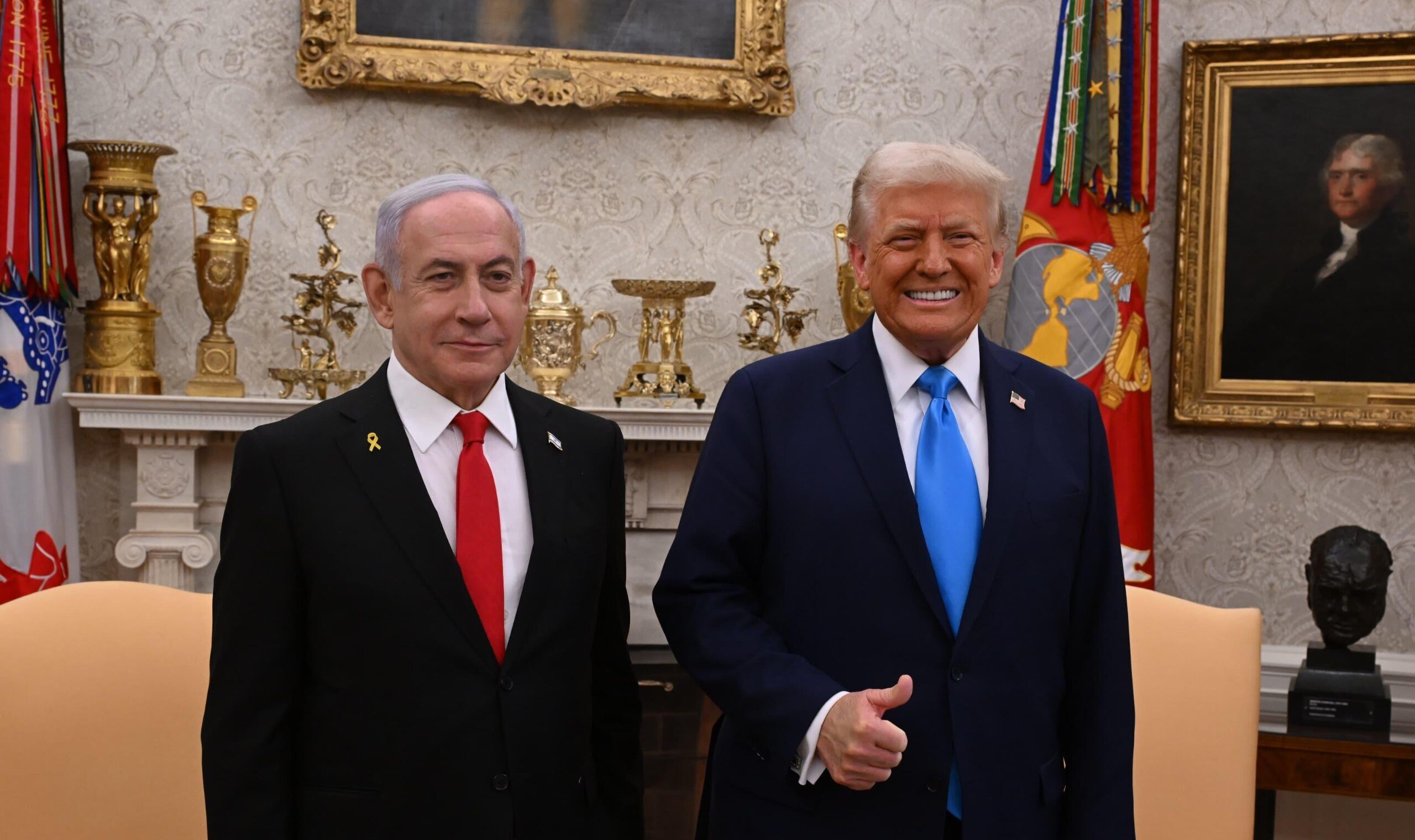Trump Is Balancing U.S. Policy Toward Israel—and That’s Good
American divergence from Israeli policy can benefit both countries.

President Donald Trump’s snubbing of Israel during his recent trip to the Middle East is an indicator that a more balanced approach toward that nation is evolving. During his first term, Trump touted himself as the most Israel-friendly American president ever. That is saying something, given the long line of U.S. chief executives who have had very favorable policies toward the country. Trump approved of moving the capital of Israel from Tel Aviv to the international city of Jerusalem, the eastern part of which is regarded by the Palestinians as the future capital of their aspirational state. He also recognized Israel’s annexation of the Golan Heights, contrary to the international view that it is an occupied area of Syria won in war. Furthermore, he brokered the Abraham Accords by which some Arab countries normalized relations with Israel. Finally, Trump implicitly accepted an acceleration of Israeli settlements in the occupied West Bank.
Nevertheless, Israel’s Prime Minister Benjamin Netanyahu should have realized that Trump’s foreign policy is often transactional and that his warm relationship with the American president was based on shared interests that could eventually diverge. Netanyahu’s need to continue the war in Palestine (to preserve his right-wing governing coalition and tenure as prime minister and thus postpone his legal peril) is now clashing with Trump’s ardent need for a meaningful deal somewhere in the world. That divergence of interests should now be sinking in.
For example, Israel’s policy toward its main regional rival, Iran, has always been intended to lure the United States into massive debilitating air strikes, including trying to take out the country’s nuclear facilities with uniquely large American bunker-busting bombs. Yet Trump, aspiring to be the ultimate dealmaker on the global stage, now wisely seems to be inclined to negotiate a new nuclear deal with Iran, rather than beginning a likely ill-fated bombing campaign over uranium enrichment. Any new agreement will probably run along the lines of the deal that President Barack Obama and five other countries signed in 2015, which Trump scrapped during his excessively pro-Israel first term. Iran will probably be required to liquidate its stockpile of highly enriched uranium while being allowed to continue to enrich uranium under strict international controls and inspections to prevent weapons-grade enrichment. Going around Netanyahu and his aggressive right-wing government to negotiate directly with the Iranians is the right move to keep Iran’s program from making a weapon, something that would encourage nuclear proliferation among other Arab countries. Of course, Israel would rather have a belligerent Trump acting militarily to cripple a regional rival.
Also, Trump has cut a side deal with the Houthis in Yemen, who are attacking Israel and international shipping in the Red Sea in solidarity with Hamas in Gaza. Trump ended U.S. bombing of the Houthis in exchange for their halting attacks on U.S. shipping. The Houthis, however, have not agreed to end attacks on Israel if it does not end the war in Gaza.
Subscribe Today
Get daily emails in your inbox
Lastly, Trump seems to be negotiating with Hamas to involve the group on a committee for post-war governance of Gaza. This, just as the Israeli government has launched another offensive in a vain attempt to eradicate the group in Gaza. Before the group’s October 7, 2023 attack, Israel had secretly supported Hamas to divide Palestinians and to subvert any two-state solution to the overall conflict in Palestine. Netanyahu and his right-wing government sought to drive a wedge between Hamas and the Palestinian Authority so Israelis could grab more land from Palestinians through expanded settlements in the West Bank. This came at the expense of promoting Israel’s security through fortifying intelligence and defenses and negotiating a durable peace.
Trump is in fact probably doing Israel, if not necessarily Netanyahu, a favor by negotiating to corral the Iranian nuclear program (better late than never) and by attempting to end the war in Gaza. This will help Israel avoid the quagmire there that more offensives, continued Israeli occupation, and desperately hungry Gazans would be likely to bring about. At this point, continuing the war does not help Israel or its security, only Netanyahu’s political and legal situation and the Israeli right wing. More carpet-bombing of an already devastated Gazan moonscape and the commission of more war crimes by restricting food and medicine merely inflame future anti-Israeli generations of Gazans, who will not forget the depredations and mass slaughter of 53,000 souls and counting.
And, if Netanyahu is eventually ejected from power, maybe Trump, always eager to make well-publicized deals, could even make the two-state solution great again—still the best shot at a durable peace in Palestine.